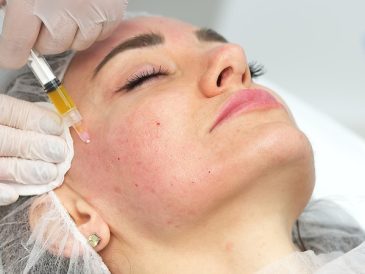A trip to the dentist can often elicit a sense of dread. But beyond just ensuring a gleaming smile, regular dental check-ups are vital for the early detection of various oral health disorders. A dentist is not only your ally in fighting cavities but also a trained professional who can spot the earliest signs of certain diseases that affect not only your mouth but your overall health.
Common Dental and Oral Diseases
Some common issues dentists encounter are well-known, while others might surprise you. Here are a few they are trained to detect:
-
Cavities and tooth decay
-
Periodontal (gum) disease
-
Oral cancer
-
Temporomandibular joint disorders (TMD)
-
Halitosis (bad breath)
Gum Disease
Periodontal disease often manifests subtly before progressing to worse stages. In its initial form, as gingivitis, you may notice some swelling or bleeding when brushing your teeth. If left untreated, the affliction can escalate to periodontitis, a more serious infection that can destroy the bones that support your teeth, possibly resulting in tooth loss.
During an exam, a dentist can diagnose gum disease by looking for:
-
Swollen or tender gums
-
Gums that bleed easily during brushing or flossing
-
Gums that have pulled away from teeth—indicating recession
If gum disease is evident, a dentist will suggest a treatment plan based on its severity, which may include deep cleaning or surgical procedures.
Tooth Decay and Cavities
Dental cavities, or caries, are another common problem caused by the acid-producing bacteria in plaque. This results in the weakening of the tooth enamel and, eventually, a cavity. Regular check-ups are essential for the early identification and treatment of cavities to prevent more serious decay and tooth loss.
A dentist can assess your personal risk factors for tooth decay, such as diet, oral hygiene habits, and fluoride exposure, and recommend corrective measures or treatments accordingly.
The Menace of Oral Cancer
Oral cancer is a serious condition that can manifest in various places within the mouth, including the tongue, throat, lips, and salivary glands. Dentists are skilled at identifying the early stages of oral cancer, often before symptoms are noticeable to the patient. During a routine inspection, a dentist will check for any lumps, irregular tissue changes, or sores, and may suggest a biopsy if something unusual is found.
Addressing Temporomandibular Joint Disorders (TMD)
TMD affects the joint that connects the jaw to the skull. Dentists can identify TMD by examining your jaw and the way it moves, looking for pain, limited motion, and noises like clicking or popping when you open or close your mouth. If you’re experiencing facial pain, headaches, or a locked jaw, it’s important to mention these symptoms to your dentist.
Chronic Bad Breath Could Indicate Halitosis
Many people suffer from bad breath, and while it’s often caused by the foods we eat or poor oral hygiene, sometimes it’s a symptom of a more serious underlying condition known as halitosis.
Telltale Signs of Halitosis
Persistent bad breath, even after brushing, could indicate halitosis and warrants a deeper examination by a dentist to determine the cause and appropriate treatment.
Other Conditions Dentists Can Spot
The scope of a dentist’s capabilities extends further. Below are additional ailments that can be detected through oral examination:
-
Erosion due to acid reflux
-
Osteoporosis, which can manifest as brittle teeth or bone loss in the jaw
-
Diabetes, discernible by gum disease, dry mouth, or other dental health issues
Dental Work as a Path to Recovery
In cases where dental health reflects more systemic issues, a dentist might advise you to see a primary care physician or a specialist. Regular dental visits are thus invaluable as a preventive measure against not only localized dental issues but also systemic health problems.
Advancements in Dental Treatments
Dental technology and techniques have advanced substantially, offering more seamless ways to address dental issues. For instance, some individuals might be interested in procedures that improve not only function but also aesthetics, such as a cost-effective dental implant procedure. This innovation provides a durable and natural-looking replacement for missing teeth, enhancing both smile and oral health.
Importance of Early Detection and Treatment
Getting ahead of oral health issues through early detection cannot be overstated. Advanced procedures help restore not just the mechanical aspects of dental function but also the confidence that comes with a healthy smile.
Maintaining Good Oral Hygiene: The Key to Oral Health
Regular brushing, flossing, and dental visits are critical in maintaining oral health and early detection of oral health disorders. It’s also important to understand that practices offering comprehensive dental care from places such as Tolley Dental, are valuable resources for maintaining oral health and preventing future complications.
Recommended Dental Hygiene Practices
A comprehensive dental routine includes regular check-ups, cleanings, and necessary dental work. Being proactive with your dental care can save you discomfort and even more significant health issues in the future.
To End
Your dentist serves as the first line of defense not just for cavities and cosmetic concerns but for a range of potential health issues. By maintaining a consistent dental care routine and regular check-ups, you can ensure that any oral health disorders are diagnosed and treated promptly, preserving your overall well-being. So, the next time you sit in the dentist’s chair, remember that they’re looking out for more than just your pearly whites—they’re safeguarding your health from the top down.





